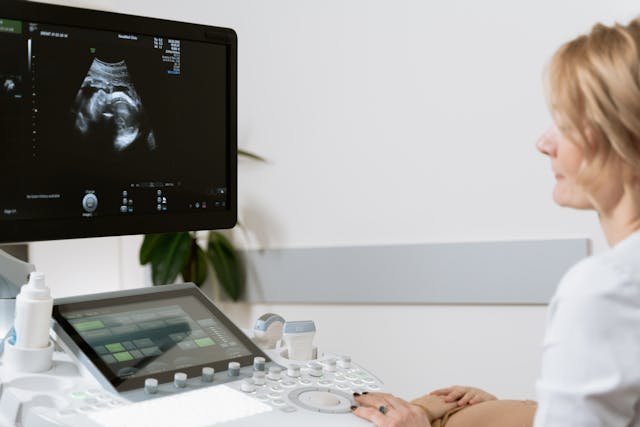Gestational diabetes is one of the most common pregnancy complications that affects millions of women worldwide. It usually develops during the second or third trimester and is characterized by elevated blood sugar levels. While it can be concerning, proper management through a balanced gestational diabetes diet plan, exercise, and medical guidance can help ensure a healthy pregnancy and delivery.
In this comprehensive guide, we will cover what gestational diabetes is, its causes, symptoms, risk factors, treatment options, and a carefully crafted 7-day meal plan for gestational diabetes. We will also address frequently asked questions and provide authentic resources to help you stay informed.
What is Gestational Diabetes?
Gestational diabetes (GDM) is a type of diabetes that occurs only during pregnancy. Unlike type 1 or type 2 diabetes, it usually resolves after childbirth. However, women who develop GDM have a higher risk of developing type 2 diabetes later in life.
During pregnancy, hormonal changes can make it harder for the body to use insulin effectively, leading to insulin resistance. When the pancreas cannot produce enough insulin to keep blood glucose levels in the normal range, gestational diabetes develops.
According to the Centers for Disease Control and Prevention (CDC), around 2% to 10% of pregnancies in the United States are affected by GDM each year (CDC source).
Symptoms of Gestational Diabetes
Gestational diabetes often doesn’t show obvious symptoms, which is why routine screening during pregnancy is essential. However, some possible symptoms include:
- Increased thirst
- Frequent urination
- Fatigue
- Blurred vision
- Nausea
Many of these symptoms overlap with normal pregnancy, so proper testing is the only way to confirm the condition.
Risk Factors for Gestational Diabetes
Certain factors may increase the likelihood of developing GDM:
- Being overweight or obese before pregnancy
- Previous pregnancy with gestational diabetes
- Family history of type 2 diabetes
- Polycystic ovary syndrome (PCOS)
- Being over the age of 25
- High blood pressure or heart disease
- Ethnic background (higher risk in South Asian, African American, Hispanic, and Indigenous populations)
Diagnosis of Gestational Diabetes
The most common tests for diagnosing GDM include:
- Glucose Challenge Test (GCT): A screening test where you drink a sugary solution and have your blood sugar checked after one hour.
- Oral Glucose Tolerance Test (OGTT): If GCT is abnormal, you undergo a fasting test followed by drinking a glucose solution, with multiple blood sugar measurements over three hours.
Complications of Gestational Diabetes
If untreated, gestational diabetes can cause complications for both mother and baby:
For the mother:
- Higher chance of needing a C-section
- Increased risk of preeclampsia
- Risk of developing type 2 diabetes later in life
For the baby:
- Macrosomia (large birth weight)
- Low blood sugar after birth
- Breathing difficulties
- Higher risk of childhood obesity or diabetes
Treatment and Management
The main goal of managing gestational diabetes is to keep blood glucose levels within a healthy range. Common strategies include:
- Following a gestational diabetes meal plan
- Regular physical activity (like walking or prenatal yoga)
- Monitoring blood sugar levels with a glucometer
- Medication or insulin therapy if diet and exercise are not enough
The American Diabetes Association (ADA) recommends regular monitoring and lifestyle adjustments as first-line treatment (ADA source).
Foods to Eat with Gestational Diabetes
- Whole grains (brown rice, oats, quinoa)
- Non-starchy vegetables (broccoli, spinach, cauliflower, zucchini)
- Lean proteins (chicken, fish, tofu, beans)
- Healthy fats (avocado, nuts, olive oil)
- Low-glycemic fruits (berries, apples, pears)
- Dairy alternatives or low-fat dairy
Foods to Avoid with Gestational Diabetes
- Sugary drinks and juices
- White bread, pastries, and refined grains
- Fried and processed foods
- Candies, cookies, and desserts high in sugar
- High-sodium processed snacks
- Excessive red and processed meats
Sample 7-Day Meal Plan for Gestational Diabetes
This meal plan balances protein, complex carbs, fiber, and healthy fats to maintain stable blood sugar levels.
Day 1
- Breakfast: Scrambled eggs with spinach and whole-grain toast
- Snack: Apple slices with almond butter
- Lunch: Grilled chicken salad with mixed greens, avocado, and olive oil dressing
- Snack: Greek yogurt with chia seeds
- Dinner: Baked salmon with roasted broccoli and quinoa
Day 2
- Breakfast: Oatmeal topped with blueberries and walnuts
- Snack: Carrot sticks with hummus
- Lunch: Turkey and avocado wrap in a whole-wheat tortilla
- Snack: Cottage cheese with cucumber slices
- Dinner: Grilled shrimp with zucchini noodles and a side salad
Day 3
- Breakfast: Vegetable omelet with mushrooms and peppers
- Snack: Handful of mixed nuts
- Lunch: Lentil soup with a slice of whole-grain bread
- Snack: Celery sticks with peanut butter
- Dinner: Baked chicken breast with green beans and brown rice
Day 4
- Breakfast: Chia seed pudding with strawberries
- Snack: Hard-boiled egg with a slice of whole-grain toast
- Lunch: Grilled tuna salad with spinach and chickpeas
- Snack: A small pear with cheese
- Dinner: Turkey meatballs with spaghetti squash and marinara sauce
Day 5
- Breakfast: Smoothie with spinach, protein powder, almond milk, and flaxseeds
- Snack: Almonds and a small orange
- Lunch: Quinoa bowl with grilled chicken, black beans, and avocado
- Snack: Greek yogurt with sunflower seeds
- Dinner: Grilled cod with roasted Brussels sprouts and sweet potato
Day 6
- Breakfast: Whole-grain pancakes topped with fresh berries
- Snack: Baby carrots with guacamole
- Lunch: Grilled tofu stir-fry with broccoli and cauliflower rice
- Snack: Handful of pistachios
- Dinner: Roasted turkey with steamed green beans and wild rice
Day 7
- Breakfast: Scrambled eggs with avocado slices and whole-grain tortilla
- Snack: A handful of walnuts and half an apple
- Lunch: Grilled chicken Caesar salad with light dressing
- Snack: Low-fat cheese with cucumber sticks
- Dinner: Baked salmon with asparagus and quinoa pilaf
Lifestyle Tips for Managing Gestational Diabetes
- Eat smaller meals more frequently to avoid spikes in blood sugar
- Stay hydrated with water or unsweetened beverages
- Exercise regularly (light to moderate activity after meals helps reduce glucose levels)
- Track food intake and blood sugar in a journal or app
- Attend prenatal checkups for continuous monitoring
Frequently Asked Questions (FAQs)
1. Can gestational diabetes go away after pregnancy?
Yes, it usually resolves after childbirth. However, women who have had GDM are at higher risk of developing type 2 diabetes in the future.
2. What is the best breakfast for gestational diabetes?
A balanced breakfast with protein, healthy fats, and complex carbs—such as scrambled eggs with vegetables and whole-grain toast—is ideal.
3. Can I eat fruits if I have gestational diabetes?
Yes, but choose low-glycemic fruits like berries, apples, and pears. Avoid fruit juices and limit high-sugar tropical fruits.
4. Is exercise safe with gestational diabetes?
Yes, unless advised otherwise by your doctor. Walking, swimming, and prenatal yoga are safe and effective for managing blood sugar.
5. What happens if gestational diabetes is left untreated?
It can cause complications such as high birth weight, premature delivery, and increased risk of C-section. For mothers, it increases the risk of preeclampsia and future diabetes.
6. Do I need insulin for gestational diabetes?
Not always. Most women can manage with diet and exercise, but if blood sugar remains high, insulin or medications may be prescribed.
7. Can I breastfeed if I had gestational diabetes?
Yes, breastfeeding is encouraged as it helps regulate your metabolism and reduces the baby’s risk of obesity and diabetes.
Conclusion
Gestational diabetes may feel overwhelming, but with the right approach, it can be managed effectively. A healthy meal plan, regular exercise, and medical guidance are the cornerstones of controlling blood sugar during pregnancy. Following the 7-day meal plan for gestational diabetes shared above can help keep glucose levels stable while supporting both mother and baby’s health.
Always consult your doctor or a registered dietitian before making dietary changes during pregnancy.
Disclaimer
This article is for educational purposes only and is not a substitute for professional medical advice. Always consult your physician, dietitian, or healthcare provider before making any dietary, lifestyle, or medication changes related to gestational diabetes or pregnancy.
Our Top Picks-Explore & Enjoy
If you enjoyed this post, we’ve hand-picked my favorite, tried-and-true recommendations for Relationships, Pet care, Travel, evidence-backed wellness,and much more. Go to your relevant niche below and start improving love, health, and pet happiness today.
Travel ✈️🛣️
Travel smarter, not harder. Why spend hours scouring the web to piece your trip together? I use a one-stop-shop for scoring the best prices on everything from rental cars and flights to all-inclusive resorts. It’s my secret for turning travel dreams into reality without blowing the budget. Explore here
Beauty & Health 🌿⚕️
Cut through the hype and find supplements and everyday wellness tools that deliver. Discover how to read labels, select high-quality products, and incorporate them into simple habits for lasting results. Find here
Pets 🐶🐱
From leash manners and crate comfort to picky-eater solutions and seasonal care — learn straightforward training techniques and simple nutrition tips that prevent problems and boost wellbeing. Practical advice every pet parent can follow. click here
Relationship❤️💕
Feeling distant from your partner? Discover practical conversation starters, small daily rituals, and conflict tools that help restore trust and warmth. No jargon — just realistic steps you can start using today.click here
Be on-line🛜💻
For Bloggers and writers—-Boost your website’s performance with ultra-fast servers, 24/7 expert support, and a beginner-friendly control panel—all at unbeatable prices. Whether you’re launching a blog, online store, or portfolio, it makes it effortless to get online and scale as you grow. Ready to level up? 👉 Grab your exclusive deal here!




